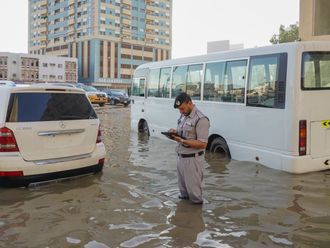Dubai: Tyres in the UAE are governed by a special set of regulations that have been in place since September 2012 and authorities insist that all efforts are being exerted to make the new system effective.
Introduced by the Emirates Standardisation and Metrology Authority (Esma) to improve safety on roads, the law not only issues specifications for tyre manufacturers and restricts the sale of used tyres, but also issues guidelines on the repair and storage of tyres.
Tyres are required to have a Certificate of Conformity as evidence of compliance to the requirements of the country before such tyres are allowed to enter the UAE market.
The regulations are being implemented at all levels and that all new tyres that entered the market after September last year conform with Esma’s new stringent specifications.
Among the main requirements for new tyres to be imported into the country is their ability to withstand temperatures up to 50 degrees Celsius, whereas tyres normally are manufactured for temperatures around 30 degrees Celsius.
The law bans storage of tyres in temperatures above 25 degrees Celsius, while specifying that tyres can’t be stored on top of each other, most tyre shops can be seen blatantly flouting these rules.
The new regulations allow re-use of old tyres only for buses and trucks, provided they are retreaded by one of the 25 approved manufacturers in the UAE. No importation of retreaded tyres is allowed.
Tyres exceeding the specified puncture or tread wear limit are banned from being repaired.
The puncture or tread wear limit for a light vehicle is 1.6mm, a medium-sized vehicle is 2.4mm, buses and heavy trucks is 3.2mm and motorbikes is 0.8mm.
In addition to the new specifications, the usual requirement of the date of manufacture, size, rating, speed and temperature the tyre can sustain will remain.











